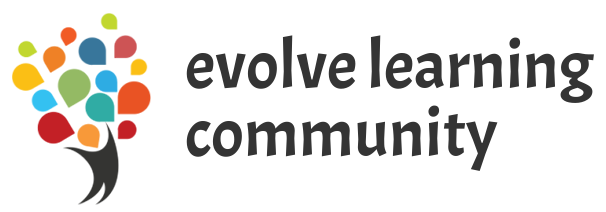Overview
What you would change about school so it would better suit your clients or your children?
- Find out how two therapists responded to the need for a learning environment that replaced old, ineffective models with a flexible approach that adapts to individual needs;
- Learn how Natural Environment Teaching (NET) redefines the role of the classroom and reimagines how students internalize learned skills;
- Explore how executive functioning skills impact students in and out of the classroom.
When therapeutic interventions are central to classroom learning, students find success and education begins to evolve!
Participants will be able to
- Identify and describe the benefits of Natural Environment Teaching (NET).
- Identify and describe at least three (3) executive functioning (EF) skills and how they impact social-emotional learning and are barriers to academic success.
- List at least two potential stressors within a traditional academic setting and two options for how they can be ameliorated, addressed or managed.
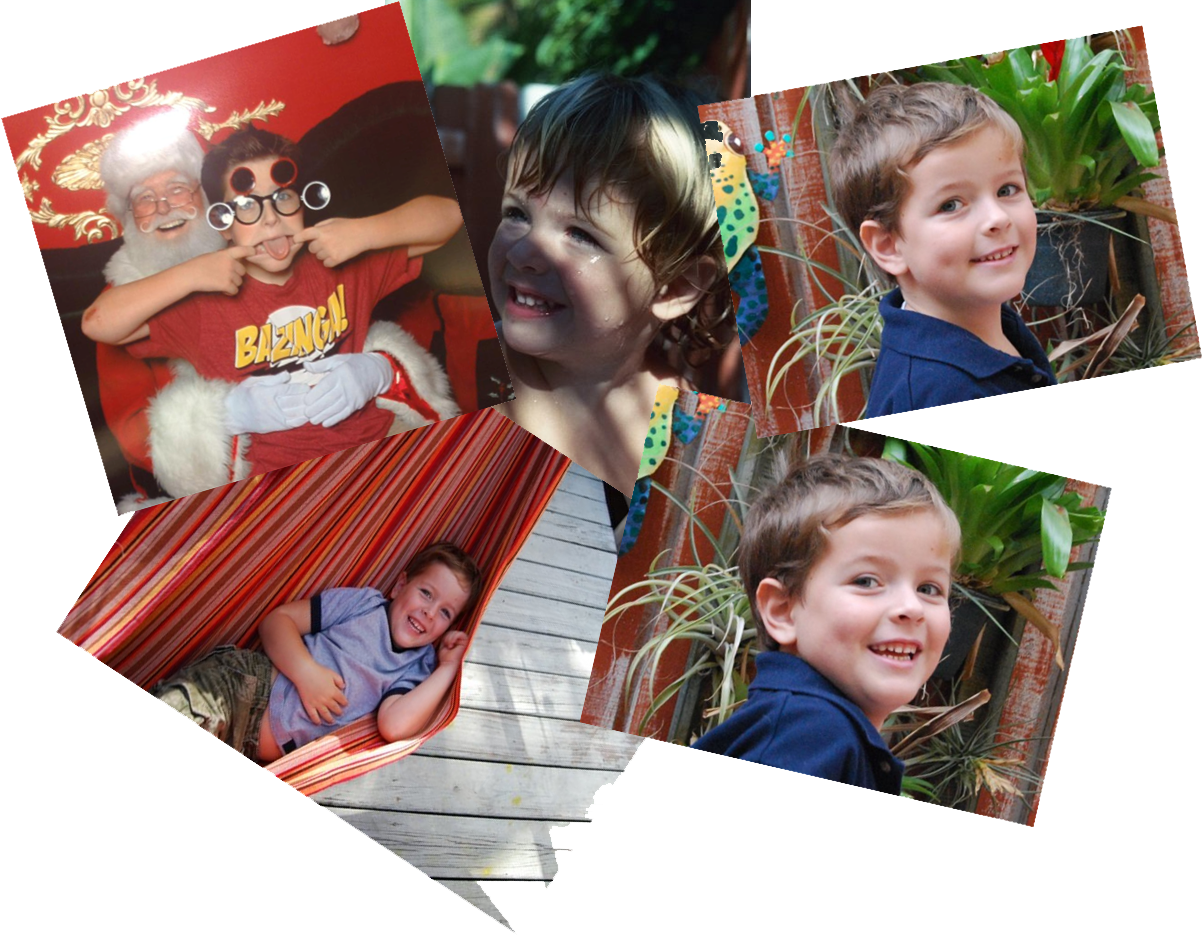

Symptoms that impact learning
- Sensory- sounds, lights, smells, sensory processing (APA, 2013)
- Anxiety, which pervades the everyday life of individuals with autism and many other neurodiverse individuals (Ereny, G. & Raghu, R., 2012)
- Social understanding (APA, 2013)
- Executive Functioning (Dawson, P. & Guare, R., 2018)
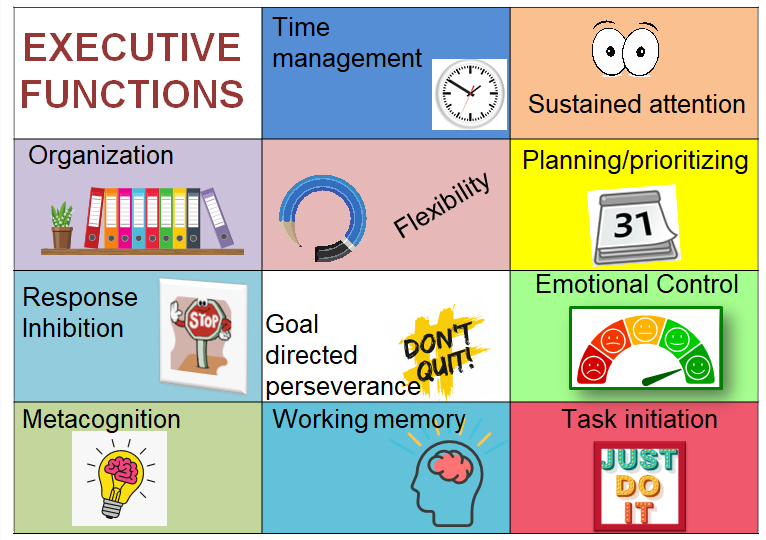
Vision:
To improve the quality of life for students and their families by transforming education.
Mission:
To provide children and families with an educational model that creates a cycle of success, starting from joy and individual strengths, and feeding back into joy and individual strengths.
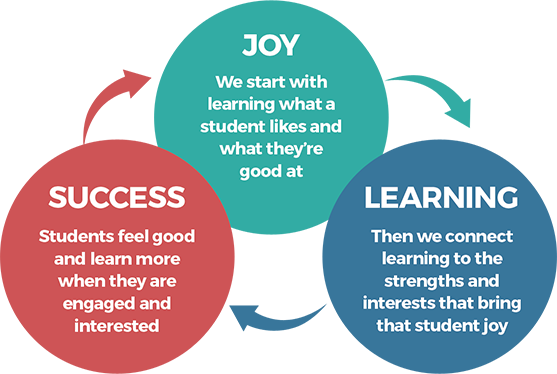
Philosophy and Model
 The EL model offers the best of the following:
The EL model offers the best of the following:
- Montessori
- Waldorf
- Reggio Emilia
- Willed education, home
schooling/unschooling - Democratic and Free Schooling
- Classical Education
Educational Beliefs
Just like life itself, education is organic, not linear. Learning can happen anywhere,
not just in a classroom.


Focus on ‘diversity of talent’ and that which resonates with the learner. Learners will share their inherent value with others. We cultivate the full human potential, fostering a fully inclusive, compassionate environment.
Current Statistics
- 2.04 million homeschoolers nationwide (75% increase since 1999)
(National Home Education Research Institute, 2011) - Registered homeschoolers / unschoolers in the State of Florida: at least 84,000
- Broward: at least 5,000
- Dade: at least 4,200
- Palm Beach: at least 5,700
(Florida Department of Education, 2020)

Academic Performance of Homeschoolers
- 15 to 30 percentile points above public-school students on standardized academic achievement tests
- above average on achievement tests (regardless of their parents’ level of education or family’s household income)
- score above average on the SAT and ACT tests
- increasingly being actively recruited by colleges.
(Ray, Brian D., 2019)
Academic Performance
[table id=1 /]
- Students who were previously homeschooled graduate college at a higher rate than their peers (66.7%, 57.5%)
(Sheehy, K., 2012)
Social, Emotional and Psychological Development
- typically above average on measures of social, emotional, and psychological development
(peer interaction, self-concept, leadership skills, family cohesion, participation in community service, and self-esteem)

- regularly engaged in social and educational activities with people other than their nuclear-family members
(field experiences, scouting, 4-H, political drives, church ministry, sports teams, and community volunteer work)
Life Skills Development
[table id=3 /]
(Sheehy, K., 2012)
Collegebound:
- Facilitation of SAT/ACT or GED prep
- Portfolio preparation
- Obtaining letters of recommendation

- Counseling and Coaching
What matters most as you consider college? | Keeping your fees low? | Attending a four-year college right away? Staying close to home? | Study abroad?
Learning disabilities / differences?
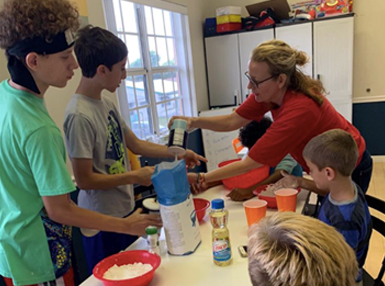
- Alternative to traditional schooling
- Less restrictive
- No imposed benchmarks
- Activities are derived from each learner’s interests, so any “learning differences” tend to work themselves out in time
- Reasonable accommodations for students with an IEP from another school
- Underlying skills deficits (e.g., Executive Functioning, social understanding) are addressed in a natural environment
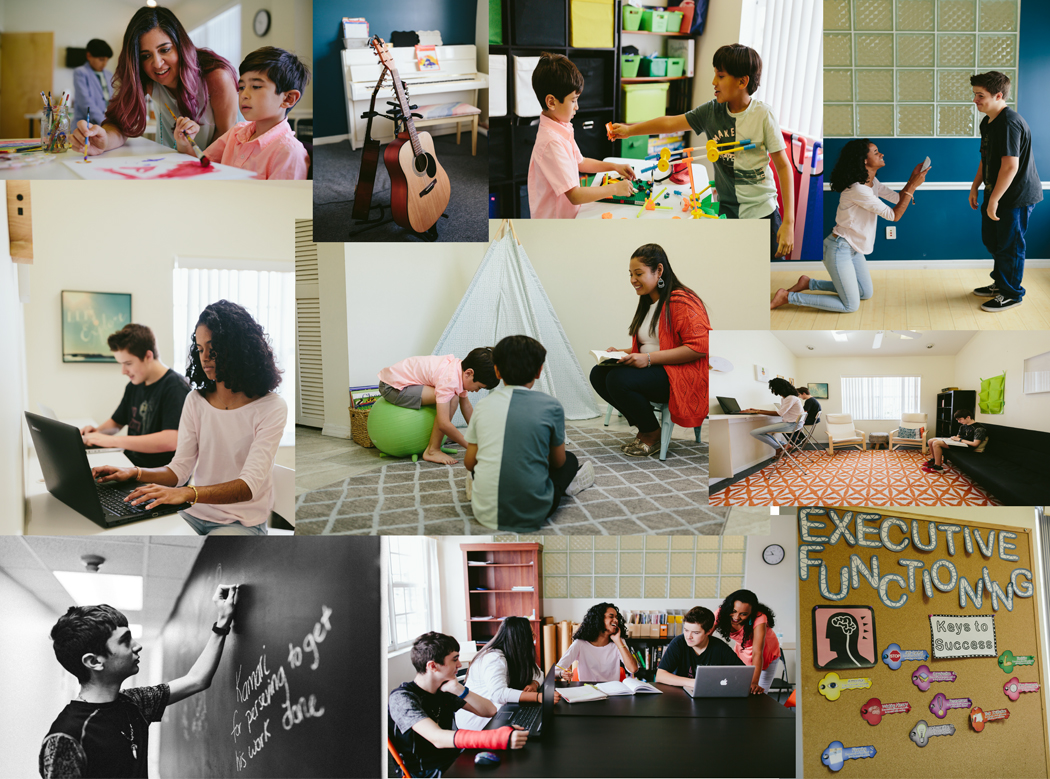
Classes
- Writing/drawing prompts
- Yoga, meditation & mindfulness, fitness and wellness
- Brain breaks
- Improv/acting
- Philosophy, speech/debate, critical thinking, psychology
- Book club
- Art and music
- Chess
- Maximize Your Mind™️
EDUCATIONAL PHILOSOPHY
Back Door Approach
- Integrating strategies and interventions throughout the learning day
- Executive function skills and socio-emotional tools are taught in a natural environment
- Yields more significant and longer lasting results.

Social Emotional Learning & Executive Functioning
EF assessment
Social skills assessment
Behavioral Management

- Our students can identify and name their feelings, and separate these from actions
- All feelings are acceptable, some actions are not
- Mistakes are welcome opportunities for learning.
(Nelsen, J. 2013)
- Students are set-up for success
- Expected behaviors are constantly reinforced through a token economy system

Time Ins
- Traditional school settings use Time-Outs
- At EL we use Time-Ins, a non-punitive method
- A safe space or “Calm Room” is provided where the students can:

- calm their bodies and regulate their emotions
- problem solve
- respond adequately to the situation
- learn and practice emotional regulating strategies
- feel proud of what they have learned afterwards
Zones of Emotional Regulation
(Kuypers, L., 2011)
- help regulate their actions,
- increase emotional control,
- and strengthen their problem solving skills.
Emotional ABC
Award winning emotional skills program designed to:
- Increase emotional vocabulary
- Enhance emotional Awareness
- Improve emotional/social cues interpretation
- Help kids pause before taking action
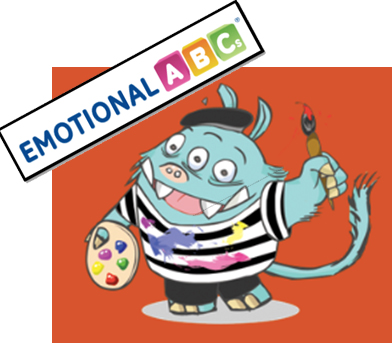
MARBLE JAR AND SHOUT-OUTS
Errorless Teaching
- The child is taught to make the correct choice immediately
- Helps reduce frustration and increase success and confidence.
- Many of our students come from traditional settings where they were unsuccessful and experienced a lot of failures and overcorrection.

Social Understanding
- Acknowledge
- Clarifying ?’s
- Considerate
- Compliment/Encourage
- Green/Yellow/Red
- Help on their terms
- Let it go, let it be
- Pacing (time left)
- Checking in (Are you ok? Can I go first?)
- Suggestion
- Wait time
- Rule of 3
- Voice at 1 or 2
- Sacrifice
- Flexible
- That’s ok, we all make mistakes,
- Interjection (cool, awesome)
REFERENCES
American Psychiatric Association. (2013). Diagnostic and statistical manual of mental disorders (5th ed.). https://doi-org.ezproxylocal.library.nova.edu/10.1176/appi.books. 9780890425596.dsm01
Dawson, P. & Guare, R., (2018) Executive Skills in Children and Adolescents (3rd Ed.), NY, New York: Guilford Press.
Florida Department of Education. Home education. Retrieved January 16, 2020, from http://www.fldoe.org/schools/school-choice/other-school-choice-options/home-edu/
Gobrial Ereny, & Raghavan Raghu. (2012). Prevalence of anxiety disorder in children and young people with intellectual disabilities and autism. Advances in Mental Health and Intellectual Disabilities, 6(3), 130–140. https://doi-org.ezproxylocal.library.nova.edu/10.1108/20441281211227193
Ray, Brian D., 2019. Homeschool: Fast facts. National Home Education Research Institute.
Sheehy, K., 2012. Home-schooled teens ripe for college. US News.com.
Touchette, P., & Howard, J. (1984). Errorless Learning: Reinforcement Contingencies and Stimulus Control Transfer in Delayed Prompting. Journal of Applied Behavior Analysis, 17(2), 175–188.
Thank you!
Director:
Christina Sullivan, LCSW, ADHD-CCSP
Phone: (954) 440-2483
Email: info@evolvelearningcommunity.com
